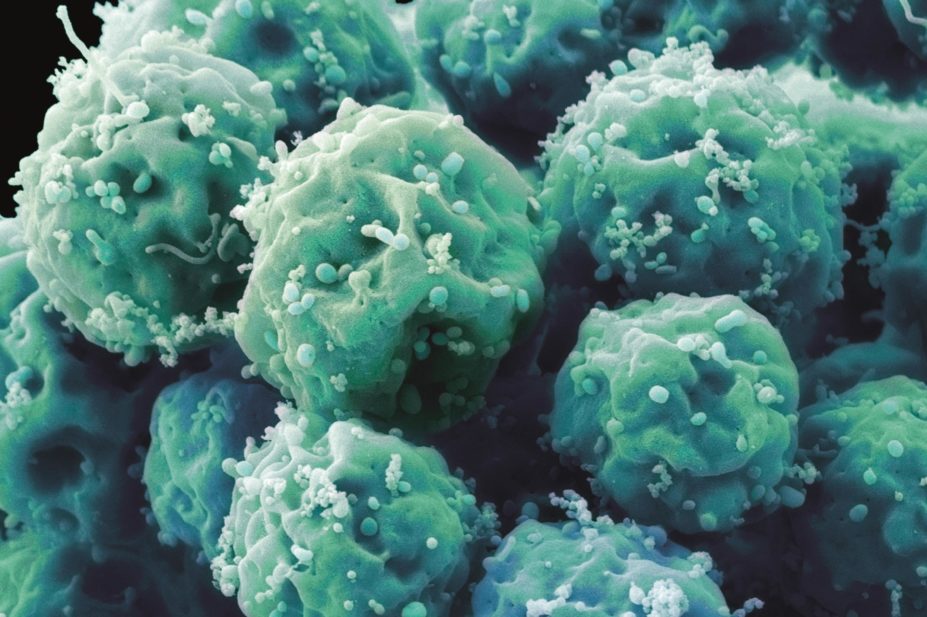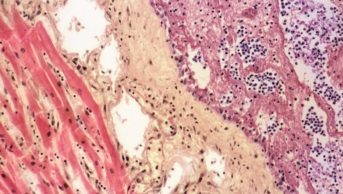
Steve Gschmeissner / Science Photo Library
In a step towards developing a cell therapy for type 1 diabetes, stem cell researchers at Harvard University have produced — for the first time — human insulin-producing cells.
These cells, derived from human embryonic stem cells, can be generated in the large quantities required for cell transplantation and are the equivalent in almost every way of normally functioning, insulin-producing cells, according to research published in Cell
[1]
.
“Eliminating daily insulin injections for diabetics in favour of providing people with the cells that normally make insulin is not a novel or complicated idea,” says Doug Melton, director of the Harvard Stem Cell Institute and lead researcher of the study. “The challenge was to instruct stem cells to become pancreatic, insulin-producing factories that innately know how to accurately measure the amount of sugar in the blood and squirt out the appropriate amount of insulin.”
In 2012, through a six-step, 30-day process, the researchers generated insulin-producing cells that, unfortunately, did not properly respond to glucose. Success came in 2013, after Melton’s team conducted a critical test-tube experiment. Three sequential doses of glucose were applied to the cells, which generated the accurate amounts of insulin each time. During 2014, the researchers have conducted additional test-tube and animal tests, including transplanting the cells into a diabetic mouse whose own cells could not produce insulin.
Melton has already planned the next phase of his research. A pre-clinical trial using monkeys will begin before the end of 2015. It will also explore the use of different devices to protect the cells as they’re being transplanted and being retrieved. By 2017, he hopes to have scheduled human clinical trials.
Harvard may license the technology to pharmaceutical manufacturers, Melton anticipates. However, this is not the type of scientific development that will find its way on to pharmacy shelves.
“Pharmaceutical companies and pharmacies do not sell cells,” says Melton. “Our discovery is a disruptive technology not for pharmacists to dispense, but rather to be transplanted, as cells, into patients in an outpatient setting.”
Since the early 1980s, after the cloning of the insulin gene that made it possible to produce human insulin administered by injection, the insulin business has grown into a multibillion dollar global enterprise. “Ours is a different insulin trajectory,” says Melton. “We’re putting insulin-making cells into people.”

